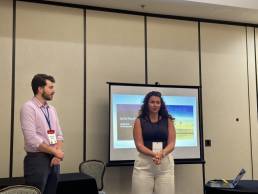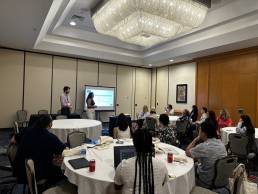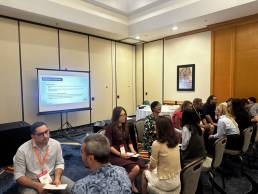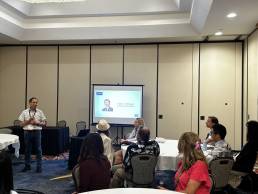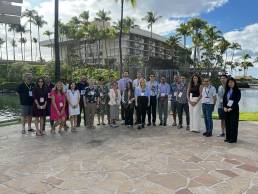The HICSS Junior Faculty Consortium (JFC) is designed to provide a nurturing environment that encourages the growth and development of junior faculty in the fields of computer science, information systems, and technology management. As a platform for early-career academics to gain mentorship, build networks, and develop strategies for advancing their careers and navigating through the complexities of academia, the Consortium aims to empower participants in their pursuit of ambitious goals while fostering a sense of community and collaboration.
The JFC targets junior faculty members who are in the early stages of their academic careers in related disciplines. It seeks to attract individuals who are not only passionate about their research but are also interested in developing their teaching skills, expanding their professional networks, and exploring leadership opportunities within the academic community.
Application Instructions:
Applicants should submit the most up-to-date version of their CV and a cover letter. The cover letter should outline their current research interests and include a one-paragraph summary of their research project with information on research approach.
Important Dates
Submission Deadline: August 31, 11:59PM Hawaiian time
Notification of Acceptance: September 30
The Consortium will be held on the day before the main conference.
Fee
The Consortium is free, but all participants must register for the HICSS conference.
Inquiries
For questions, please contact the JFC organizers and co-chairs:
Benjamin Ampel, bampel@gsu.edu
Edona Elshan, e.elshan@vu.nl
Jason Thatcher, jason.thatcher@colorado.edu
Tentative Agenda for JFC at HICSS-59:
1:00pm – 1:10pm
Welcome and Introduction
1:10pm – 1:40pm
Keynote Address, Tung Bui – Conference Chair
1:40pm – 2:30 pm
Mentor Presentations on how to achieve work-life balance and persevere through early career life
2:30pm – 3:00pm
Coffee Break
3:00pm – 3:30pm
Networking with Speed Dating
3:30pm – 4:45pm
Group Discussions on five-year goals with regard to research, teaching, leadership, job transitions and potential concerns
4:45pm – 5:30pm
Mentor Panel
6:00pm
Reception
Highlights from JFC at HICSS-58
The consortium brought together junior faculty, experienced mentors, and thought leaders to foster meaningful mentorship, networking, and knowledge exchange. It featured engaging discussions, practical advice, and opportunities to connect with a global academic community.
Event Overview
The event opened with a warm welcome and introduction, setting the tone for a day of collaboration and growth. Participants were encouraged to actively engage and take full advantage of the mentorship and networking opportunities provided. The day’s agenda was carefully structured to address critical aspects of academic life, including career development, research strategies, teaching innovations, and leadership skills.
Mentor Contributions
During the mentor-led sessions, experienced faculty including Alan Dennis, Sagar Samtani, Jason Thatcher, Till Winkler and Amber Young shared their journeys and advice. Strategies for developing leadership skills, managing diverse research teams, and fostering collaboration within institutional and interdisciplinary settings were discussed. The importance of creating a vision for research teams and aligning team efforts with both institutional goals and personal career trajectories was emphasized.
Interactive Sessions
The consortium’s interactive sessions were particularly impactful. These included:
- Networking with Speed Dating: Participants engaged in brief, one-on-one conversations with mentors and peers, fostering connections and identifying potential collaborators. This session created an energetic and inclusive atmosphere, helping junior faculty expand their professional networks.
- Group Discussions: Small group discussions allowed participants to share their five-year goals in research, teaching, and leadership. Mentors provided tailored advice and feedback, helping participants refine their plans and address specific challenges.
- Mentor Panel: The event concluded with a mentor panel where participants asked questions on topics such as publishing strategies, interdisciplinary research, and the tenure process. Mentors shared their diverse perspectives and practical guidance, leaving participants with actionable insights.
Participant Feedback and Outcomes
Participants praised the consortium for its collaborative and supportive environment. Many found the advice on career trajectory development, managing the research pipeline, and navigating the tenure process particularly valuable. The opportunity to connect with mentors and peers in an informal setting was widely appreciated, with many participants noting that the consortium helped them feel more confident and prepared to tackle the challenges of academia.


